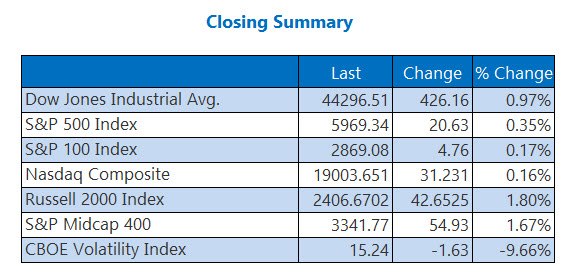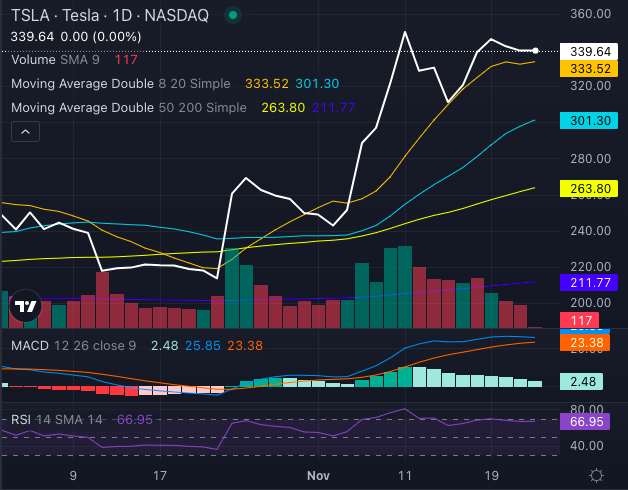As an income investor or retiree, I face the challenge of selecting the right investment option from a vast array available. My objective is to generate consistent income while preserving my capital. That's why I'm exploring the choice between two popular income exchange-traded funds (ETFs): JEPI and JEPQ.
These funds are known for their attractive dividend yields, with JEPI offering 9.3% and JEPQ boasting 11.1%. Both funds invest in covered call equity-linked notes (ELNs) to generate income while reducing potential capital gains.
In this article, I will compare the equity holdings, dividends, capital gains and losses, total returns, and risk and volatility of JEPI and JEPQ. This analysis will help me make an informed decision as an income investor or retiree seeking stable and consistent income.
Key Takeaways
- JEPI and JEPQ are popular income ETFs for income investors and retirees.
- JEPQ has a higher dividend yield compared to JEPI, offering potential higher income.
- JEPQ has outperformed the S&P 500 since inception, while JEPI has stable and consistent returns.
- JEPI focuses on lower-volatility stocks, providing potential long-term benefits for income investors and retirees.
Fund Overview and Comparison
In terms of fund overview and comparison, there are a few key factors to consider when choosing between JEPI and JEPQ.
The first factor to analyze is fund performance. JEPI has a yield of 9.3% while JEPQ has a slightly higher yield of 11.1%. Both funds have slightly underperformed in the long-term, but JEPQ has outperformed the S&P 500 since its inception.
The second factor to consider is the investment strategy of each fund. JEPI invests in large-cap U.S. equities with lower volatility, including blue-chip stocks like Microsoft, Visa, AbbVie, and PepsiCo. It also invests in equity-linked notes tied to the S&P 500 index.
On the other hand, JEPQ focuses on the Nasdaq-100, holding tech and communication services stocks like Microsoft, Apple, Google, and Amazon. JEPQ is significantly overweight in tech and underweight in financials and energy.
These factors should be carefully evaluated to make an informed decision between JEPI and JEPQ.
Equity Holdings Comparison
When comparing the equity holdings of JEPI and JEPQ, it's important to note the differences in their investment strategies. Here are three key points to consider:
- Investment strategies:
JEPI invests in large-cap U.S. equities with lower volatility, focusing on blue-chip stocks like Microsoft, Visa, AbbVie, and PepsiCo. It also holds equity-linked notes (ELNs) tied to the S&P 500 index.
On the other hand, JEPQ invests in large-cap U.S. equities, with a significant overweight in tech and communication services stocks like Microsoft, Apple, Google, and Amazon. It also holds ELNs tied to the Nasdaq-100 index.
- Industry exposure:
JEPI has a diversified industry exposure, with a focus on consumer staples and industrials. This gives the fund stability and consistency in performance.
On the other hand, JEPQ is significantly overweight in tech and underweight in financials and energy. This makes the fund more susceptible to the performance of the tech sector.
- Performance:
JEPI has a comparatively safe and stable performance, with 115 stocks in its portfolio.
JEPQ tends to outperform when tech stocks outperform, and it holds 81 stocks. Both funds have slightly underperformed long-term, but JEPQ has outperformed the S&P 500 since its inception.
Considering these factors, investors and retirees should carefully assess their risk tolerance and investment goals when choosing between JEPI and JEPQ.
Dividends Comparison
Typically, income investors and retirees prioritize consistent and high dividends when comparing investment options. When analyzing the dividends of JEPI and JEPQ, it's important to consider their dividend growth and the impact of market conditions on their dividend performance.
JEPI has shown positive dividend growth since inception, indicating a stable and reliable dividend stream. On the other hand, JEPQ is still too young to analyze its dividend growth.
It's worth noting that both funds invest in covered call equity-linked notes (ELNs), which generate significant income. Dividend growth for both funds is dependent on asset growth and option prices. Additionally, higher implied equity volatility can lead to higher dividends.
JEPI's dividend growth has shown a relationship with its volatility, suggesting that market conditions play a role in its dividend performance.
Capital Gains and Losses Comparison
To assess the differences between JEPI and JEPQ, it's important to examine their capital gains and losses. Here are three key points to consider:
- Impact of industry tilts: JEPI invests in large-cap U.S. equities with a focus on consumer staples and industrials, resulting in stable and consistent returns. However, its underweight position in the tech sector has caused it to underperform during bull markets, impacting its capital gains. On the other hand, JEPQ is significantly overweight in tech stocks, which has led to higher capital gains during favorable market conditions.
- Performance during bear markets: Both JEPI and JEPQ have tended to outperform during bear markets and sideways movements. JEPI's focus on lower-volatility stocks has resulted in lower capital losses during downturns and recessions. JEPQ's overweight tech position has also contributed to lower capital losses since its inception.
- Overall performance: JEPI has historically experienced higher capital losses compared to JEPQ, largely due to its underweight position in tech and JEPQ's shorter track record. However, JEPQ has underperformed the Nasdaq-100 since its inception. The long-term performance of both funds will depend on future market conditions and movements.
Total Returns Comparison
Continuing the analysis from the previous subtopic on capital gains and losses, let's now delve into the total returns comparison between JEPI and JEPQ.
Total returns performance is an important factor to consider for income investors and retirees, as it directly impacts income growth.
JEPI has returned an average of 10.9% per year since inception, underperforming the S&P 500 by 1.3%.
On the other hand, JEPQ has returned an average of 6.1% per year since inception, underperforming the Nasdaq-100 by 1.5%.
The outperformance of JEPQ can be attributed to its significant overweight in tech stocks and favorable market conditions.
However, it's important to note that JEPQ's shorter track record and market conditions impact the comparison between the funds.
Ultimately, the long-term performance of both funds will depend on future market conditions and movements.
Risk and Volatility Analysis
When considering the risk and volatility of JEPI and JEPQ, it's important to analyze their historical performance and market conditions. Here are three key points to consider regarding risk assessment and volatility analysis for income investors and retirees:
- Historical Performance:
Examining the past performance of JEPI and JEPQ can provide insights into their risk profiles. JEPI has demonstrated stable and consistent returns, while JEPQ has outperformed the S&P 500 since inception. However, both funds have slightly underperformed their respective benchmarks in the long term.
- Market Conditions:
Understanding the current market environment is crucial for assessing risk and volatility. Both funds invest in large-cap U.S. equities, but JEPI focuses on consumer staples and industrials, while JEPQ is significantly overweight in tech. Market conditions, particularly in these sectors, can impact the funds' performance and volatility.
- Dividend Growth and Capital Gains:
Dividend growth and capital gains are important considerations for income investors and retirees. JEPI has shown positive dividend growth since inception, while JEPQ's dividend growth is yet to be analyzed due to its shorter track record. Additionally, JEPI's lower-volatility stocks have resulted in lower capital losses during downturns, while JEPQ's overweight tech position has led to lower capital losses since inception.
Analyzing the historical performance, market conditions, dividend growth, and capital gains of JEPI and JEPQ can help income investors and retirees make informed decisions about their risk and volatility tolerances.
Considerations for Income Investors
As an income investor or retiree, it is important to carefully consider the factors that may impact your investment decision between JEPI and JEPQ. One key consideration is the impact of market conditions on the performance of these funds. Both JEPI and JEPQ invest in covered call equity-linked notes (ELNs), which generate income for shareholders. During bull markets, these funds tend to underperform their benchmarks, but they have the potential to outperform during bear markets and sideways movements. Another consideration is risk assessment. JEPI focuses on lower-volatility stocks, resulting in lower capital losses during downturns and recessions. On the other hand, JEPQ's overweight position in tech stocks may lead to higher capital losses in certain market conditions. It is crucial for income investors and retirees to assess their risk tolerance and investment goals before making a decision between JEPI and JEPQ.
| Considerations for Income Investors | JEPI | JEPQ |
|---|---|---|
| Impact of Market Conditions | ||
| Risk Assessment |
Considerations for Retirees
Considerations for retirees when choosing between JEPI and JEPQ include assessing the funds' ability to provide stable income and minimize capital losses. Here are three key factors to consider for retirement planning and income strategies:
- Income Stability: Retirees rely on a steady stream of income to cover their expenses. Both JEPI and JEPQ offer high dividend yields, but JEPQ has a slightly higher yield of 11.1%. It's important to evaluate the consistency of these dividends and their potential for growth over time.
- Capital Preservation: Retirees need to protect their investment capital to ensure long-term financial security. JEPI's focus on lower-volatility stocks and industry diversification can help minimize capital losses during market downturns. On the other hand, JEPQ's overweight position in tech stocks may expose it to higher volatility and potential capital losses.
- Long-Term Performance: Retirees should consider the historical performance of both funds. While JEPI has shown stable and consistent returns since inception, JEPQ's shorter track record makes it harder to assess its long-term performance. It's important to evaluate how these funds have performed during different market conditions and their potential for future growth.
Frequently Asked Questions
What Is the Expense Ratio for JEPI and Jepq?
The expense ratio for JEPI is 0.58% and for JEPQ it is 0.65%. When comparing the expense ratios, it is important to consider the tax implications as well.
Is There a Minimum Investment Requirement for These Funds?
There is no specific minimum investment requirement for JEPI and JEPQ. However, it is important to note that individual brokers or platforms may have their own minimum investment thresholds for these funds. Additionally, both JEPI and JEPQ have the same dividend payout frequency, which is typically on a quarterly basis.
What Is the Historical Performance of JEPI and JEPQ During Market Downturns?
During market downturns, the historical performance of JEPI and JEPQ can vary. JEPI, with its focus on lower-volatility stocks, tends to have lower capital losses, while JEPQ's overweight tech position may impact its performance.
Do JEPI and JEPQ Have Any International Equity Holdings?
No, JEPI and JEPQ do not have any international equity holdings. Therefore, there is no impact of currency exchange rates on their holdings. Their dividend yields are solely based on their domestic equity holdings.
How Often Are Dividends Paid Out for JEPI and Jepq?
Dividend frequency comparison: Both JEPI and JEPQ pay dividends quarterly. Dividend growth potential: JEPI has shown positive dividend growth since inception, while JEPQ's dividend growth is yet to be analyzed.



